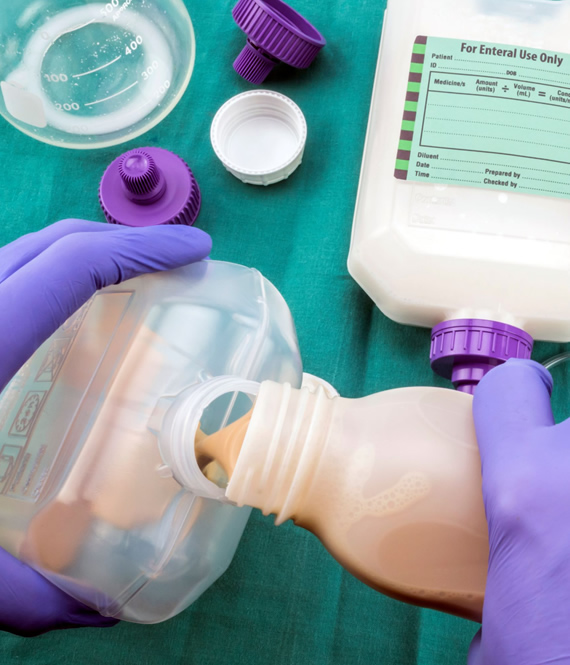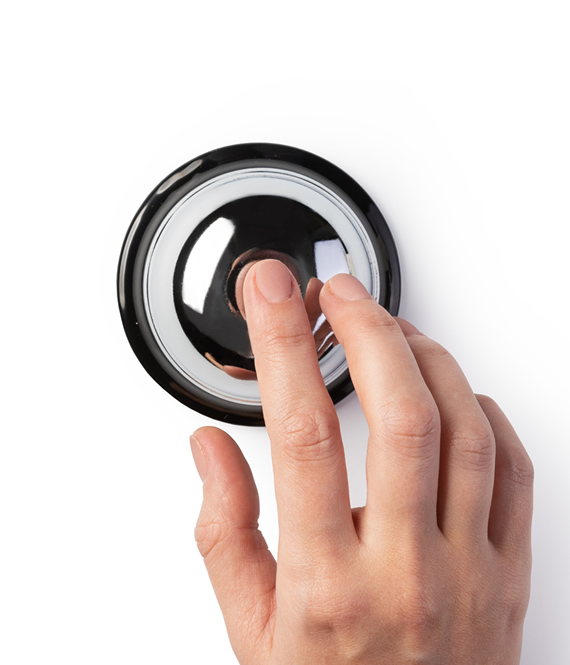
Enteral Feeding: 3 Significant Ways It Helps Elderly Patients To Thrive
We recommend helpful products in our articles. Read our full disclosure here. The content on this website is not intended to be a substitute for professional advice, diagnosis, or treatment.
As you age, it’s no secret that your body changes in ways that can make it harder to maintain a healthy lifestyle.
Eating and drinking, which were once effortless, can become complex and even painful.
This can lead to many issues, such as malnutrition, dehydration, and unintended weight loss.
Fortunately, there is a solution that can help you overcome these challenges and continue to thrive—enteral feeding.
What Is Enteral Feeding?
Enteral feeding is a form of nutrition support that provides essential nutrients directly to the digestive system through a feeding tube.
The feeding tube can be inserted through the nose, mouth, or abdomen, depending on the patient’s needs.
The formulas used in enteral feeding are designed to provide a balanced mix of all the essential nutrients you need, including protein, carbohydrates, and fats.
It’s worth noting that tube feeding differs from parenteral nutrition, a different approach to feeding that involves the delivery of liquid nutrients directly into the bloodstream.
This is done using a catheter inserted into a large vein, typically around the chest or neck.
Unlike enteral feeding, which delivers nutrients directly to the gastrointestinal tract, parenteral nutrition bypasses the digestive system and delivers nutrients directly to the body’s cells.
Enteral feeding provides complete nutrition customized to the patient’s specific needs.
The formulas used in enteral feeding are designed to provide a balanced mix of all the essential nutrients, including protein, carbohydrates, and fats.
They can also be tailored to meet any dietary restrictions or preferences the patient may have.
The feeding schedule and amount of formula can be adjusted to suit the patient’s needs.
Who Can Benefit From Enteral Feeding?
Enteral feeding is often recommended for elderly patients with medical conditions that impact their ability to eat or drink normally.
Some of the conditions that may benefit from enteral feeding include:
- Stroke or other neurological conditions that affect swallowing;
- Cancer or other illnesses that affect the digestive system;
- Dementia or Alzheimer’s disease, which can make it challenging to remember to eat or drink;
- Severe dental problems or other issues that affect chewing or swallowing.
Whether due to neurological conditions, digestive illnesses, cognitive impairments, or dental problems, enteral feeding can help ensure patients receive the nutrition they need to maintain their health and quality of life.
What Are The Benefits Of Enteral Feeding?
While enteral feeding may present some challenges, it remains a valuable option for those needing nutritional support.
Healthcare professionals can work closely with patients to determine the most appropriate course of treatment, considering the patient’s medical history, preferences, and goals.
Enteral feeding can help ensure that elderly patients receive the nutrition they need, even when they cannot consume food and fluids in the traditional manner.
To add, below are more benefits of enteral nutrition and how it helps elderly patients thrive.
1. Complete Nutrition, Customized
One of the most significant benefits of enteral feeding is it provides complete nutrition customized to specific needs.
The formulas used in enteral feeding are designed to provide a balanced mix of all the essential nutrients we need, including protein, carbohydrates, and fats.
They can also be tailored to meet any dietary restrictions or preferences a person may have.
This ensures they get all the nutrients your body needs to stay healthy.
In addition, it’s possible to adjust the feeding formulas to meet changing nutritional needs as your health changes.
For example, if an elderly person develops an infection or experience surgery, their body may require additional protein or calories to support healing.
The formulas used in enteral feeding can be adjusted accordingly, ensuring they get the necessary nutrients to support your recovery.
2. Improved Quality Of Life
Enteral feeding can have a significant impact on quality of life.
Elderly people may feel weak, tired, and unwell when malnourished or dehydrated.
With enteral feeding, there’s a possibility to maintain a healthy weight and energy level, which can improve their mood and overall outlook on life.
It makes them able to enjoy their favorite activities and spend time with loved ones without worrying about the challenges of eating and drinking.
Tube feeding can also help reduce the risk of complications associated with malnutrition and dehydration.
For example, elderly people may be more susceptible to infections or other illnesses if they’re malnourished.
Maintaining proper nutrition through enteral feeding might help reduce the risk of these complications and help them stay healthier overall.
3. Better Control Of Chronic Conditions
In chronic conditions, such as diabetes, heart disease, or COPD, enteral feeding can help the elderly better manage their symptoms.
Providing the body with the proper nutrients can improve blood sugar levels, lower blood pressure, or reduce inflammation.
This can lead to better overall health and a reduced risk of complications from these conditions.
Furthermore, enteral feeding can help reduce the need for hospitalization or other medical interventions associated with chronic conditions.
Moreover, intake can help improve nutrient absorption by providing a concentrated source of nutrients directly to the digestive system.
This can help ensure elderly patients benefit most from the nutrients they consume.
Conclusion
Enteral feeding can significantly improve the quality of life for elderly patients who are unable to consume food orally.
It helps maintain their nutritional status, prevent malnutrition, and reduce the risk of associated complications.
By providing essential nutrients, enteral feeding ensures the body has the energy and resources to fight off infections and heal from injuries or illnesses.
As with any medical intervention, however, you should administer enteral feeding with care and only under the guidance of a healthcare professional.
When done correctly, it can make a significant difference in the lives of elderly patients, enabling them to thrive and live their lives to the fullest.
"We love to research problems, examine studies, analyze solutions, and share with you ideas that make life healthier. You can learn about us and our editorial standards here. Have suggestions or feedback to share? Send us a message!."













Leave a Comment